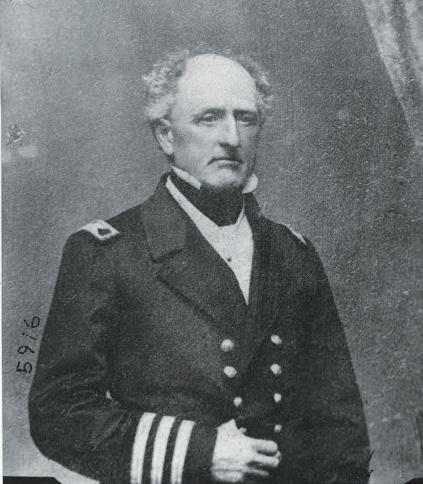Transitions by A.M. Foley
Whether we’re ready or not, the Biden/Harris administration will bring a sea change in style and substance, but consider how smooth the transition will be when compared to the upheaval Lincoln’s election caused, especially in Maryland, which became a border state. Talbot County’s Franklin Buchanan epitomized the turmoil felt in those times. Between November 6, 1860 and Lincoln’s inauguration four months later, seven states left the Union. In Baltimore, Buchanan’s birthplace, violence erupted on April 19, 1861. Massachusetts troops changing trains fired on civilian assailants who perceived them as invaders. Confident his native state would secede after this “Pratt Street Massacre,” Captain Buchanan resigned from the U.S. Navy, which he’d joined as a midshipman. Buchanan had lost his father at age seven, so he spent most of his youth in Philadelphia with his widowed mother, the daughter of Pennsylvania’s governor, Thomas McKean. Nevertheless, Buchanan still identified as a Marylander, especially after marrying Ann Catherine “Nannie” Lloyd, daughter of Edward Lloyd VI of Wye House in Talbot County.
Franklin Buchanan Since the first Lloyd had settled on the Eastern Shore in the 1600s, successive Edwards had accumulated plantations worked by hundreds of enslaved laborers. The Lloyds were the nearest thing to royalty a republic had to offer. Wye House residents might come calling by barge, propelled by enslaved, liveried oarsmen. Overseers enforcing stern discipline shocked Buchanan not at all. After enlisting at fifteen, he matured into a rigid, rule-following officer who lacked nuance and humor. Vowing never to overlook “the 97
















